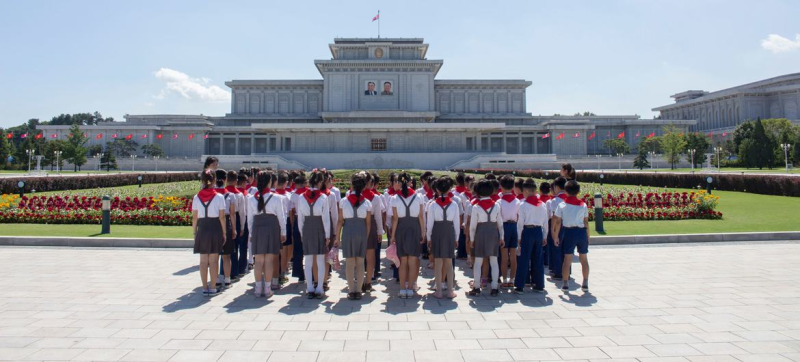- NCP Announces 27 Candidates, Aims for Seats After Exit |
- Govt Defends Prof Yunus’ Backing of ‘Yes’ Vote |
- Protecting health demands no money: Bangladeshi expert |
- EU Deploys 56 Long-Term Observers Across Bangladesh |
- Appeals over nomination papers:18 more regain candidacies back |
UN Report Finds Human Rights in DPR Korea Still Dire

The death penalty in the Democratic People’s Republic of Korea (DPRK) is “more widely allowed by law and implemented in practice” than a decade ago, said a senior UN human rights official on Friday.
The UN Human Rights Office (OHCHR) interviewed 314 witnesses who left the DPRK – more commonly known as North Korea – and consulted several organizations and experts to evaluate the human rights conditions there since 2014.
The situation has not improved and in many cases has worsened, “bringing even more suffering to the population,” said spokesperson Liz Throssell, briefing journalists in Geneva.
James Heenan, head of the office working on DPRK, highlighted the severity of human rights violations, where even minor offences can result in harsh punishment.
“We do have credible evidence that individuals have been executed – not just for watching K-dramas. The crime is for distributing, at a certain level, foreign information and foreign media,” he said.
The report found that new laws, policies and practices have led to increased surveillance and control over citizens, some of whom have been sent to forced labour camps as political prisoners.
In a form of forced labour called “shock brigades,” authorities in Pyongyang have reportedly used thousands of orphans and street children to work in coal mines and other environments, exposing them to hazardous materials and long hours, the UN report said.
Mr. Heenan further added that schoolchildren are also forced into “backbreaking” work collecting harvests while they should be in class.
“The Government says this is part of a curriculum to help them learn life skills. But the information we’ve had for many years shows that it qualifies as forced labour because the children have no choice,” he said.
The physically demanding and dangerous work of the brigades is also undertaken by people in the military or prison system, as well as by workers from poor families seeking party membership or improved social status.
Deaths are reportedly frequent under these conditions, but instead of improving safety, the DPRK publicly glorifies them as sacrifices to the leader, according to the report.
In 2014 and 2015, many senior officials were reportedly executed for “anti-State acts,” the report states.
While this trend later decreased, escapees said that since 2020, executions have been carried out for distributing unauthorized media, drug and economic crimes, prostitution, pornography, trafficking and murder.
Since 2015, six new laws have expanded the use of the death penalty to include offences such as vaguely defined “anti-state” propaganda.
Interviewees also said they witnessed public executions over the past decade. The report explains that the government has staged public trials and executions to instil fear in the population and deter dissent.
“To block the people’s eyes and ears, they strengthened the crackdowns,” one witness told OHCHR.
Escapees said some improvements have been made in the treatment of detainees. North Korea has also ratified two additional human rights treaties, but the report concludes that it remains far from meeting its international obligations.
The DPRK remains more isolated than any other nation, further complicating monitoring and the implementation of human rights standards.
“What we have witnessed is a lost decade,” said UN human rights chief Volker Türk. “And it pains me to say that if DPRK continues on its current trajectory, the population will face more suffering, brutal repression and fear.”

